Brazilian Jiu-Jitsu, in addition to being an ancient martial art with roots in Japan, presents itself as a powerful tool for personal development when introduced into the lives of children. Originating in the East and refined in Brazil, Jiu-Jitsu transcends its nature as self-defense to become a complete catalyst for physical, mental, social, and emotional growth. In this article, we will explore the numerous benefits that this ancestral practice provides to children, highlighting how it not only strengthens growing bodies but also shapes character, promotes healthy habits, and uniquely prepares young individuals for life’s challenges. By entering the world of Jiu-Jitsu in childhood, we are, in fact, embarking on a transformative journey that transcends the tatame and extends throughout life.
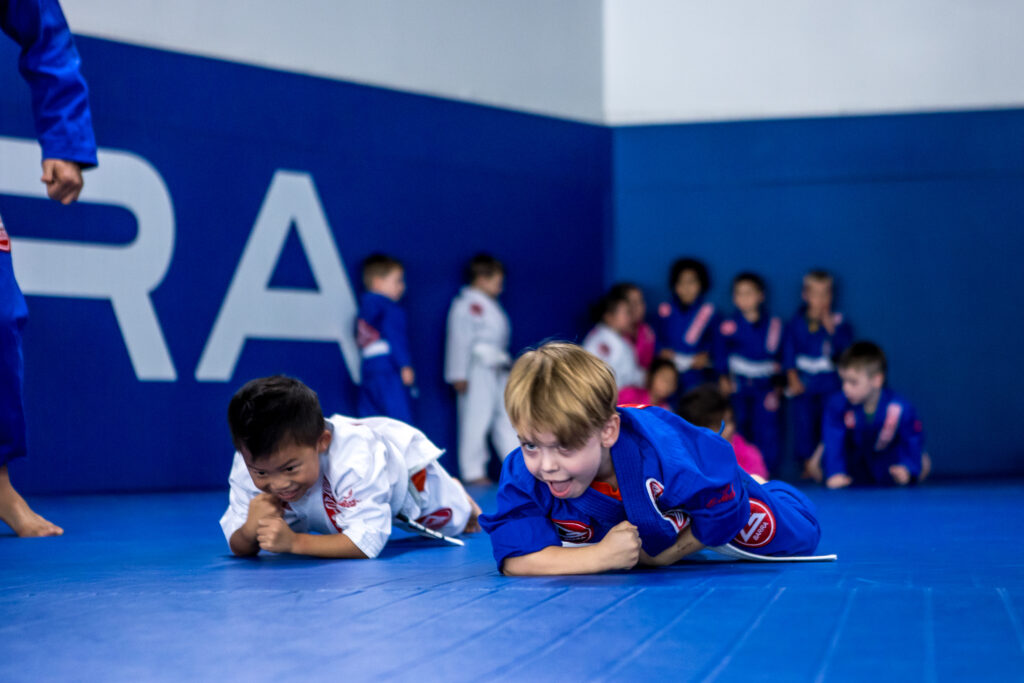
Respect and Empathy: Fundamental Values on the Mat and in Daily Life
Jiu-Jitsu culture is permeated with values such as respect and empathy. Children learn not only to respect their training partners and instructors but also develop a deeper understanding of diversity. The inclusive environment in the academies promotes empathy, crucial for cultivating healthy and respectful relationships.
Self-Confidence and Self-Control: Building a Foundation for Life
Jiu-Jitsu, by providing tangible achievements for children, such as progressing through belts, is a catalyst for building self-confidence. These accomplishments not only boost self-esteem but also teach the importance of self-control. Children learn not only to win on the mat but to control their emotions and actions in various life situations.
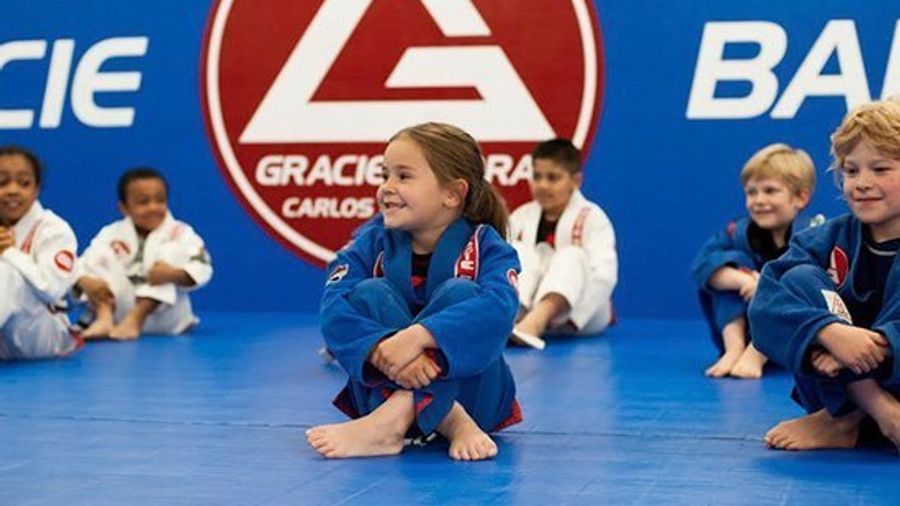
Patience and Persistence: Lifelong Lessons
One of the most valuable lessons that Jiu-Jitsu offers is the importance of patience and persistence. Children learn that progress is not instantaneous but the result of continuous effort and dedication. This resilient mindset applies not only to the mat but also serves as a crucial lesson for facing life’s challenges with resilience and determination.
Stimulating Creativity and Individuality: An Art with Many Approaches
Despite following specific principles, Jiu-Jitsu allows for a unique expression of creativity and individuality. Children are encouraged to adapt techniques, developing their own style in the sport. This freedom of expression not only makes the practice more engaging but also fosters an innovative mindset that can be applied in various areas of life.
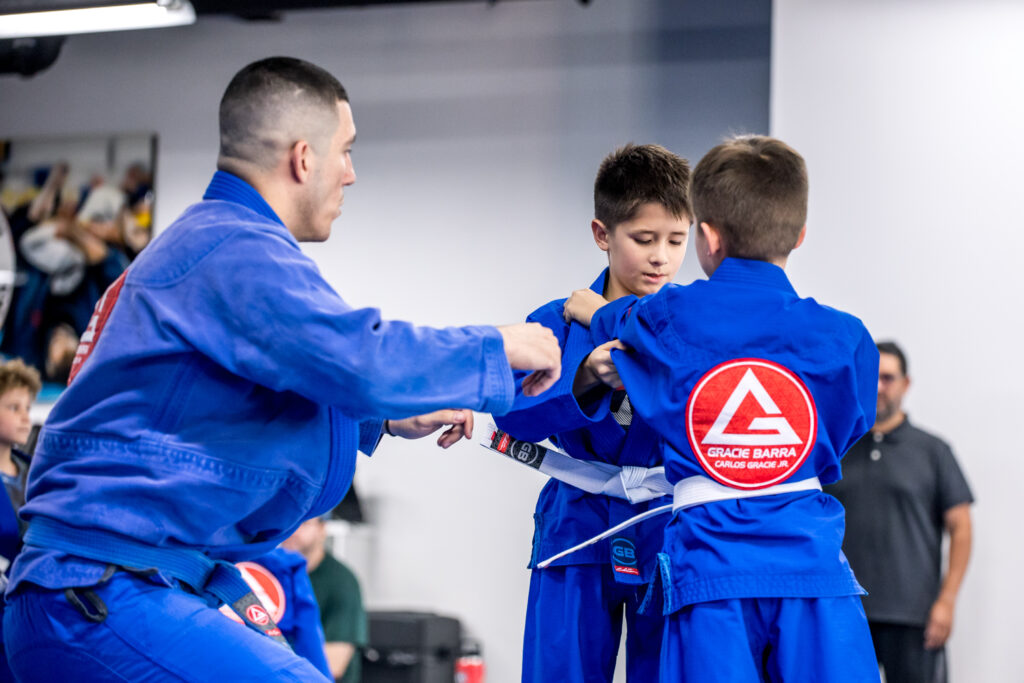
The Role of Parents and Instructors: Partnership in Comprehensive Development
In the process of children’s development in Jiu-Jitsu, the active involvement of parents and instructors is crucial. Collaboration between these two figures plays a crucial role in creating a positive learning environment. Qualified instructors not only teach techniques but also model essential values, while parents provide support and encouragement outside the academy, solidifying an effective partnership for the comprehensive growth of children.
Brazilian Jiu-Jitsu as a Tool for Bullying Prevention: Empowerment and Resilience
In a world where bullying is a growing concern, Jiu-Jitsu stands out as an effective tool for prevention. The self-defense skills taught promote not only physical safety but also strengthen the emotional resilience of children. By developing confidence in themselves, Jiu-Jitsu practitioners are better prepared to face challenging situations, making them less likely targets for bullying.
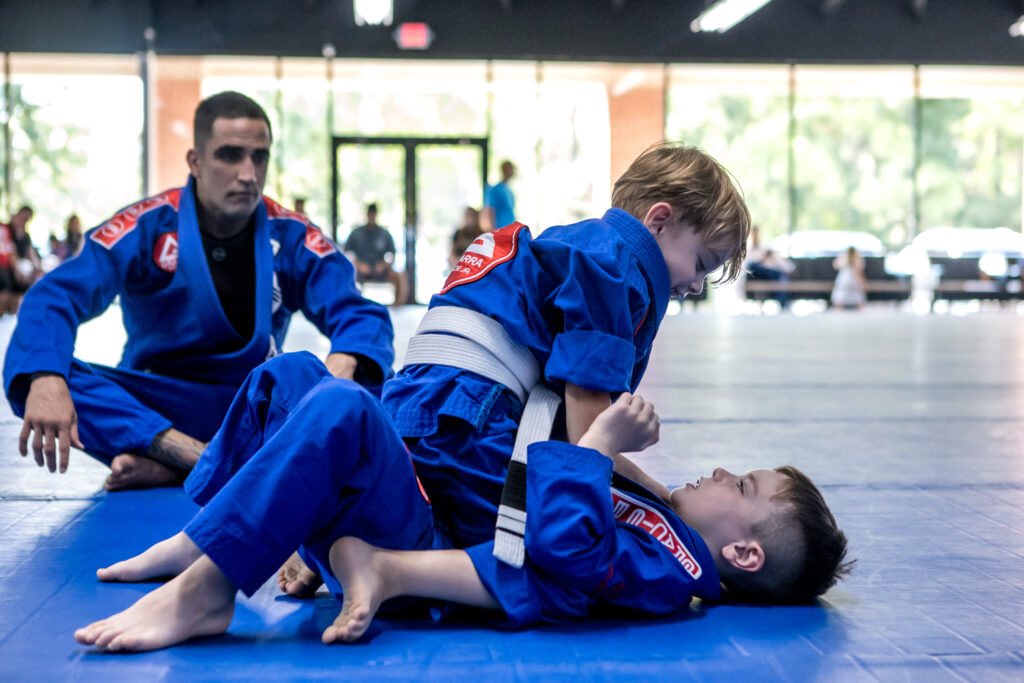
Inclusion in Jiu-Jitsu: Celebrating Diversity and Unique Abilities
Jiu-Jitsu is an inclusive practice that celebrates the diversity of skills and talents. Children with different abilities find a welcoming space where they are encouraged to develop their own skills. This inclusion not only creates a more enriching environment but also promotes respect for the uniqueness of each practitioner, building a united community on the tatame.
Events and Competitions: Stimulating a Competitive Spirit with Respect
Participation in events and competitions in Jiu-Jitsu offers a unique opportunity for children to develop a healthy competitive spirit. Learning to compete with respect for opponents and dealing with victories and defeats contributes to emotional and social growth. These experiences strengthen not only athletic skills but also the emotional resilience needed throughout life.
Physical Benefits: Strengthening Growing Bodies
Physically, Jiu-Jitsu provides an environment conducive to the development of fine and gross motor skills in children. Tailored to the specific needs of this age group, the training not only strengthens muscles but also contributes to bone development, building a solid foundation for healthy growth.
Mental Development: Focus, Discipline, and Quick Decision-Making
The mental aspect of Jiu-Jitsu challenges children uniquely. The complexity of techniques requires focus and discipline, stimulating concentration. Additionally, making quick decisions during training not only hones skills on the mat but also translates into mental agility, preparing children to face challenges outside the academy.
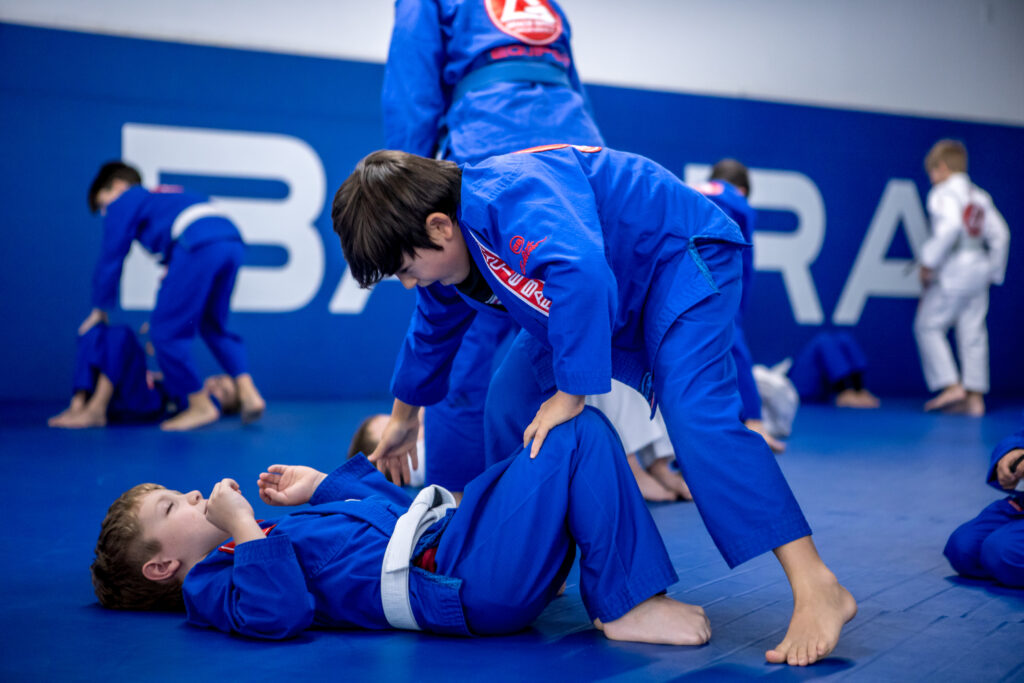
Social Development: Teamwork and Positive Relationships
The practice of Jiu-Jitsu is inherently social, involving constant interaction. Teamwork, essential during training, transcends the mat, providing children with the opportunity to develop fundamental social skills. Friendships cultivated in the Jiu-Jitsu environment often extend beyond the academy, creating a valuable support network.
Self-Defense and Responsibility: Practical Skills and Ethics
While Jiu-Jitsu teaches practical self-defense skills, the focus is not only on technique but also on ethical responsibility. Children learn the importance of using their skills in an ethical and responsible manner. This understanding not only strengthens their integrity but also prepares them to make conscious decisions in challenging situations.
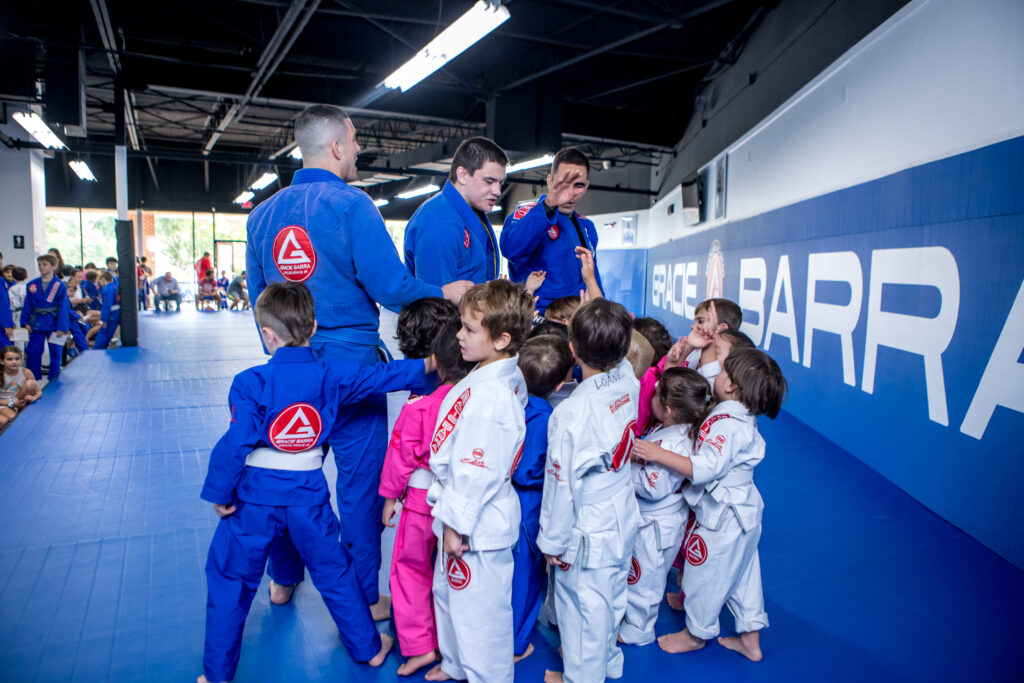
The Importance of Brazilian Jiu-Jitsu in Establishing Healthy Habits: Body and Mind in Harmony
Integrating Jiu-Jitsu into the routine of children goes beyond physical and mental development, positively influencing healthy habits. Regular practice of this martial art not only strengthens the body but also promotes the importance of an active lifestyle. Children learn that physical health is intrinsically linked to mental balance, creating a solid foundation for maintaining healthy habits throughout life.
Cognitive Development: Stimulating Strategic Intelligence and Tactical Reasoning
Jiu-Jitsu, with its intricate techniques, offers significant stimulation for the cognitive development of children. The need to think strategically during training enhances strategic intelligence and tactical reasoning. These skills not only benefit performance on the mat but also have practical applications in academic and professional situations.
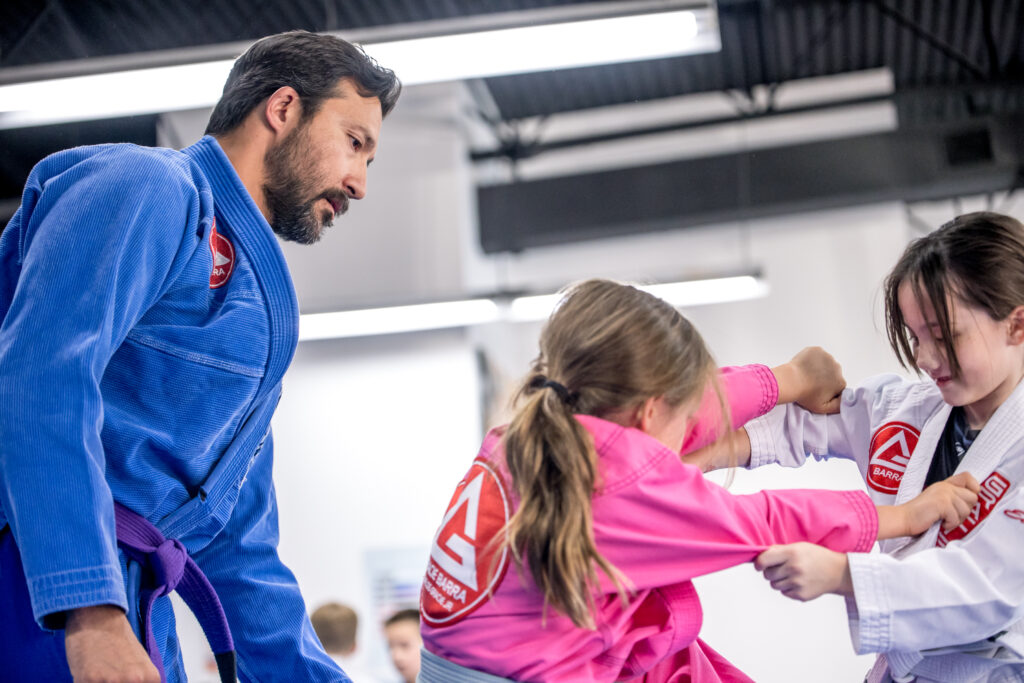
The Cultural Dimension of Jiu-Jitsu: Connection to History and Tradition
Introducing children to Jiu-Jitsu is also providing immersion in the rich culture and tradition of this martial art. Connecting with the history of Jiu-Jitsu not only deepens the understanding of the practice but also cultivates an appreciation for cultural diversity. This educational aspect contributes to the formation of culturally aware and respectful children.
The Transcendence of Jiu-Jitsu Beyond the Tatame: Applications in Everyday Life
Learning in Jiu-Jitsu is not limited to the tatame; its lessons extend into everyday life. The patience learned during training is reflected in children’s approach to academic challenges. The discipline cultivated on the tatame manifests in study habits and responsibility. This transfer of skills significantly contributes to academic success and emotional maturity.
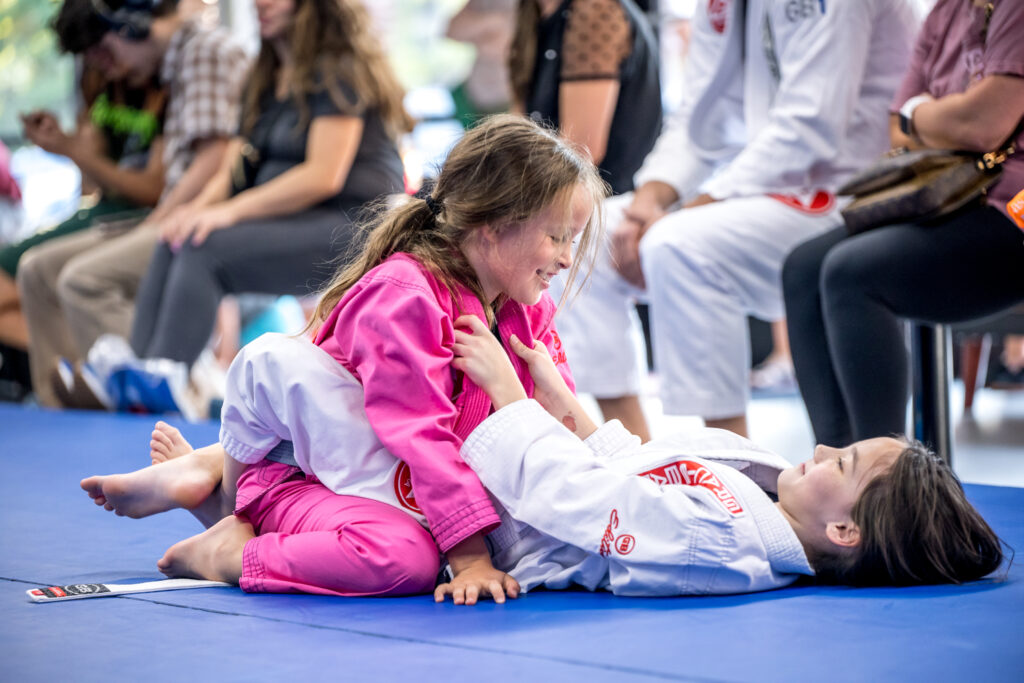
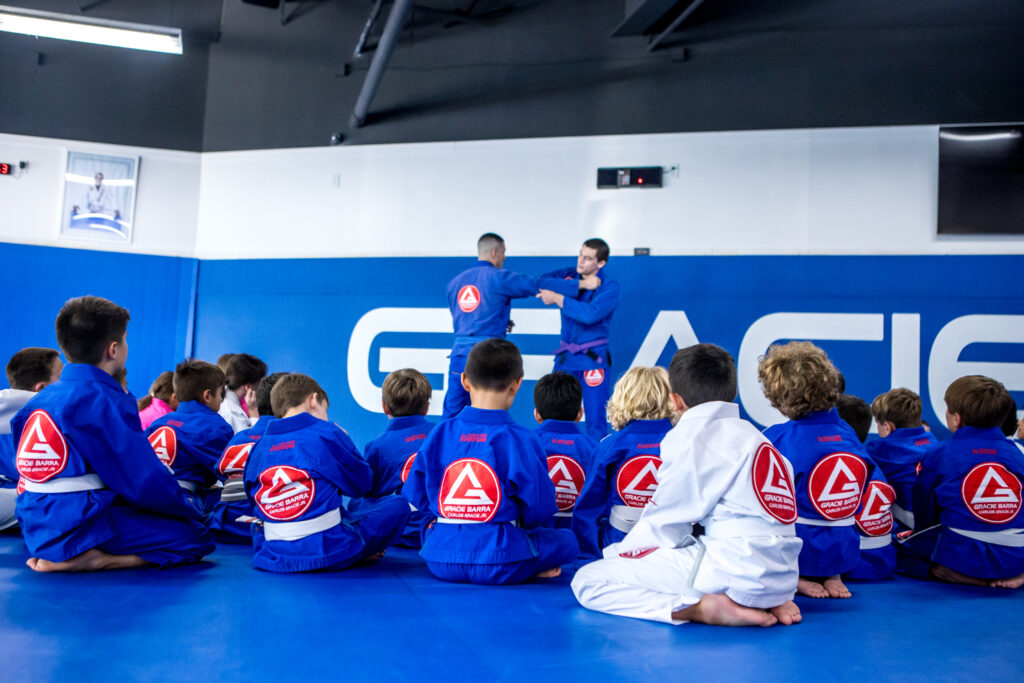
In Short:
Brazilian Jiu-Jitsu, a martial art with Japanese origins refined in Brazil, emerges as a comprehensive catalyst for growth in children. This ancestral practice goes beyond self-defense, shaping not only bodies but also characters. By strengthening physical skills, developing mental focus, and instilling values such as respect and empathy, Jiu-Jitsu reveals itself as a journey of holistic development. Additionally, it promotes healthy habits, stimulates strategic thinking, and provides essential tools to navigate life’s challenges. Active parental involvement, competitive events, and the inclusion of children with diverse abilities contribute to an enriching experience. This practice, initiated in childhood, transcends the tatame, continuing to positively impact lives, shaping resilient, conscious, and balanced adults. Jiu-Jitsu, thus, proves to be more than just an extracurricular activity; it is a transformative lifelong journey.



